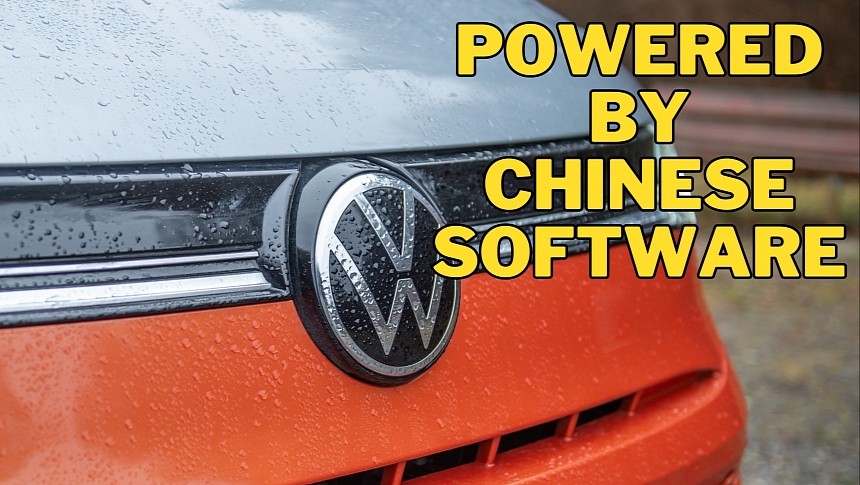While Volkswagen is working around the clock on in-house software, the company must rethink its strategy in some parts of the world, especially as it's trying to squeeze every cent from its vehicle lineup.
In China, for example, the partnership with a local software company makes more sense for Volkswagen, especially given the sometimes aggressive push for domestic solutions in the auto world and in every little side of the industry.
As such, the German carmaker reportedly decided to team up with none other than Huawei, so HarmonyOS will be the operating system powering Volkswagen cars sold in China.
At some level, the decision is fairly surprising for a global carmaker like Volkswagen, but on the other hand, it makes perfect sense for its Chinese strategy.
Huawei's legal nightmare started in May 2019 when the United States government decided to ban the company from using any type of solution owned by American companies. Due to the sanctions, Huawei was forced to abandon key software and hardware products from its products, including Android.
At that point, Huawei was one of the world's leading phone makers, planning to become the number one company in the industry in the long term. Android was the operating system powering its devices worldwide.
Once the sanctions gained more traction and other governments across the world also adopted them, Huawei had no other option than to start the development of in-house solutions supposed to replace everything ever touched by an American company. HarmonyOS became the all-in-one platform supposed to replace Android and power a wide array of devices, including vehicles. Huawei developed its own set of alternatives to Google services, such as Petal Maps to replace Google Maps.
Huawei's strategy focused mostly on China, as its international expansion continued to be blocked by the U.S. sanctions. Eventually, it became a top software supplier for the local automotive industry and is now catching the attention of bigger names, including Volkswagen.
This doesn’t necessarily mean Huawei isn't aiming to rebecome a global player in the mobile automotive market, especially as its rivals in the tech world keep expanding their businesses to new sectors. Apple and Xiaomi are living proof in this regard, as both are currently working on their own vehicles.
Xiaomi will unveil its car first, as the company plans to take the wraps off an electric vehicle in 2024. Apple will follow in its footsteps in 2025, though the iPhone maker will likely stick with a more conventional approach than originally planned. A second Apple Car could launch with full self-driving capabilities later this decade, but the plan could always change if something doesn’t go as planned.
Apple has so far remained completely tight-lipped on everything, with official confirmation expected this year or in 2024.
As such, the German carmaker reportedly decided to team up with none other than Huawei, so HarmonyOS will be the operating system powering Volkswagen cars sold in China.
At some level, the decision is fairly surprising for a global carmaker like Volkswagen, but on the other hand, it makes perfect sense for its Chinese strategy.
Huawei's legal nightmare started in May 2019 when the United States government decided to ban the company from using any type of solution owned by American companies. Due to the sanctions, Huawei was forced to abandon key software and hardware products from its products, including Android.
At that point, Huawei was one of the world's leading phone makers, planning to become the number one company in the industry in the long term. Android was the operating system powering its devices worldwide.
Once the sanctions gained more traction and other governments across the world also adopted them, Huawei had no other option than to start the development of in-house solutions supposed to replace everything ever touched by an American company. HarmonyOS became the all-in-one platform supposed to replace Android and power a wide array of devices, including vehicles. Huawei developed its own set of alternatives to Google services, such as Petal Maps to replace Google Maps.
Huawei's strategy focused mostly on China, as its international expansion continued to be blocked by the U.S. sanctions. Eventually, it became a top software supplier for the local automotive industry and is now catching the attention of bigger names, including Volkswagen.
This doesn’t necessarily mean Huawei isn't aiming to rebecome a global player in the mobile automotive market, especially as its rivals in the tech world keep expanding their businesses to new sectors. Apple and Xiaomi are living proof in this regard, as both are currently working on their own vehicles.
Xiaomi will unveil its car first, as the company plans to take the wraps off an electric vehicle in 2024. Apple will follow in its footsteps in 2025, though the iPhone maker will likely stick with a more conventional approach than originally planned. A second Apple Car could launch with full self-driving capabilities later this decade, but the plan could always change if something doesn’t go as planned.
Apple has so far remained completely tight-lipped on everything, with official confirmation expected this year or in 2024.























































